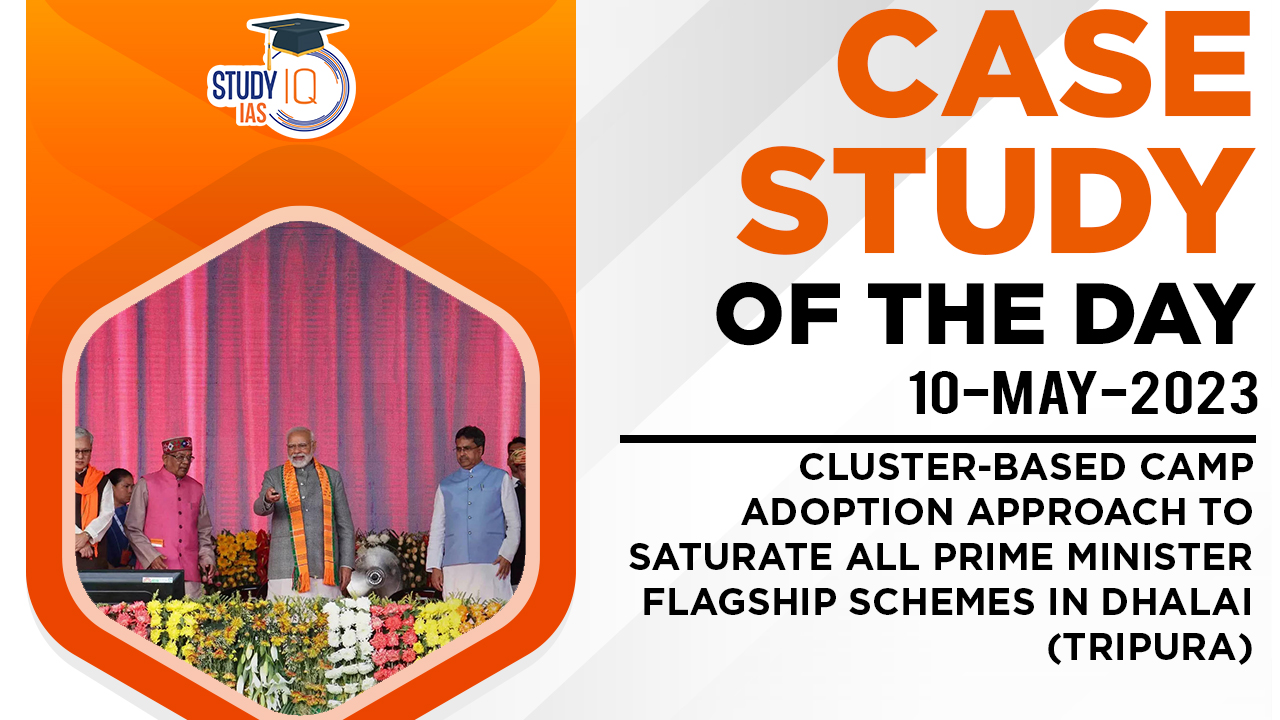Table of Contents
Introduction
In recent years, the Indian government has introduced various flagship schemes to improve the standard of living of people living in rural areas. However, the implementation of these schemes has been a challenge due to the lack of awareness, inadequate infrastructure, and other socio-economic factors. To overcome these challenges, the Tripura government adopted a cluster-based camp approach to implement Prime Minister Flagship Schemes (PMFS) in the Dhalai district of Tripura.
Background
- Dhalai is a hilly district located in the northern part of Tripura state.
- The district is predominantly rural, and the majority of the population depends on agriculture for their livelihood.
- In recent years, the government has launched various schemes to improve the standard of living of people living in rural areas.
- However, the implementation of these schemes has been a challenge due to the lack of awareness, inadequate infrastructure, and other socio-economic factors.
Objectives
- The primary objective of the cluster-based camp adoption approach was to increase awareness of PMFS among the rural population of Dhalai district and ensure maximum participation in the schemes.
- The approach aimed to identify the challenges and concerns of the beneficiaries and provide them with necessary support to avail of the benefits of the schemes.
Implementation
- The cluster-based camp approach involved the formation of clusters of villages with a population of 500-1000 individuals. Each cluster was assigned a team of officials who visited the villages and organized camps to provide information about the various PMFS schemes. The officials also assisted the beneficiaries in filling the application forms, submitting documents, and availing of the benefits of the schemes.
- The camp approach was implemented in a phased manner. In the first phase, the officials conducted a survey to identify the villages with maximum potential to benefit from the schemes. In the second phase, the officials organized camps in the identified villages and provided information about the schemes. In the third phase, the officials followed up with the beneficiaries to ensure that they were able to avail of the benefits of the schemes.
Success
- The cluster-based camp adoption approach was a highly effective strategy for implementing Prime Minister Flagship Schemes in the Dhalai district of Tripura.
- The approach led to a significant increase in the awareness of PMFS among the rural population and ensured maximum participation in the schemes.
- The success of the approach can be attributed to the effective utilization of local resources and the formation of a strong network of officials and volunteers.


 Coconut Oil Taxation in India
Coconut Oil Taxation in India
 India-made Solar Photovoltaic (PV) Cells...
India-made Solar Photovoltaic (PV) Cells...
 Tree Census: Supreme Court Ruling on Tre...
Tree Census: Supreme Court Ruling on Tre...




















